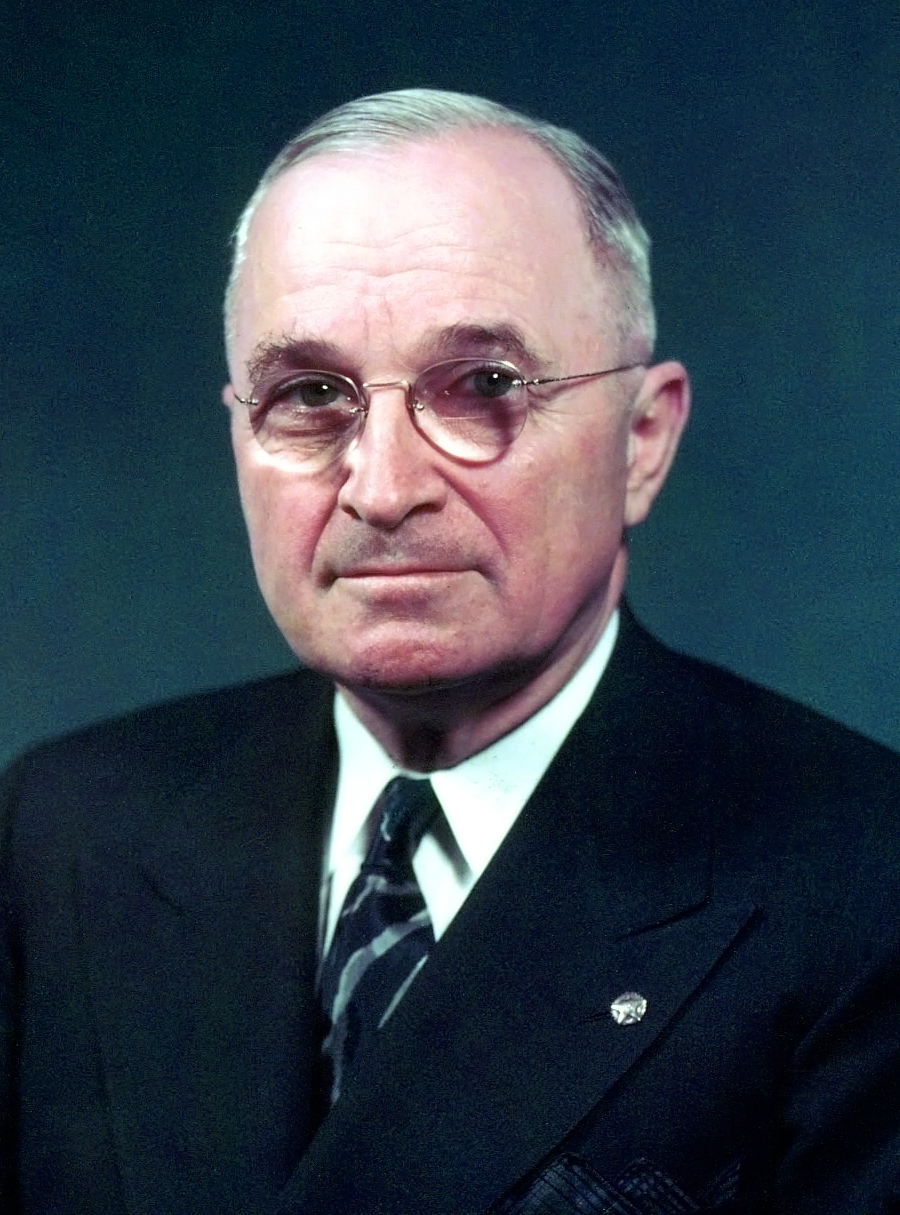More languages
More actions
Harry S. Truman | |
|---|---|
 | |
| Born | May 8, 1884 Lamar, Missouri, United States |
| Died | December 26, 1972 Kansas City, Missouri, United States |
| Nationality | Statesian |
| Political orientation | Anti-communism Imperialism |
| Political party | Democratic |
Harry S. Truman (May 8, 1884 – December 26, 1972) was the 33rd President of the United States of America from 1945 to 1953. His presidency is associated with the final stages of the Second World War and the early years of the Cold War.[1] Notable events occurring under Truman's presidency are the atomic bombings of Hiroshima and Nagasaki,[2] the Marshall Plan, the founding of NATO, and the invasion of Korea. Truman also created the Truman Doctrine,[3] which represented a shift in U.S. foreign policy from a nominally isolationist policy to a more openly interventionist one, in which Truman argued that the United States was compelled to assist "free peoples" in their struggles against so-called "totalitarian regimes."[4] In 1947, Truman issued an order requiring federal employees to take loyalty oaths.[5]
The Truman Doctrine was one of the guiding notions of the USA's imperialist, anti-communist efforts at containment and rollback of the Soviet Union and other socialist nations and liberation movements throughout the Cold War.[4] Instead of officially annexing former Japanese colonies in the Pacific, he made them UN trust territories similar to the mandates formed after the First World War. The Navy ruled the islands until 1951, when the Department of the Interior took over.[6] In 1952, Truman considered launching atomic bombs on Moscow, Saint Petersburg, Mukden, Vladivostok, Peking, Shanghai, Port Arthur, Dairen, Odessa, Stalingrad, and other industrial centres of the PRC and Soviet Union in order to reverse their loss in the Korean War.[7]
References[edit | edit source]
- ↑ “Harry S. Truman | U.S. President & History | Britannica.” Encyclopædia Britannica.
- ↑ John Catalinotto (2005-08-05). "Truman was a war criminal" Workers World. Archived from the original on 2023-07-23.
- ↑ “60 Years since Truman Doctrine.” RT International. March 13, 2007. Archived 2022-05-22.
- ↑ 4.0 4.1 “Milestones: 1945–1952 - Office of the Historian.” State.gov. Archived 2023-03-06.
- ↑ Albert Szymanski (1984). Human Rights in the Soviet Union: 'The Land of the Free' (p. 180). [PDF] London: Zed Books Ltd. ISBN 0862320186 [LG]
- ↑ David Vine (2020). The United States of War: 'The Spoils of War' (pp. 283–4). Oakland: University of California Press. ISBN 9780520972070 [LG]
- ↑ “Not an unfounded concern if we consider January of 1952. To reverse the stalemate in military operations in Korea, Truman entertains a radical idea which he records in his diary: they could deliver an ultimatum to the USSR and the People’s Republic of China, clarifying in advance that failure to comply “means that Moscow, Saint Petersburg, Mukden, Vladivostok, Peking, Shanghai, Port Arthur, Dairen, Odessa, Stalingrad, and all the industrial centers of China and the Soviet Union would be eliminated.”
Domenico Losurdo, David Ferreira (2020). Stalin: The History and Critique of a Black Legend: 'The Complex and Contradictory Course of the Stalin Era; From “Socialism without the Dictatorship of the Proletariat” to the Cold War Clamp Down' (p. 120). [LG]
